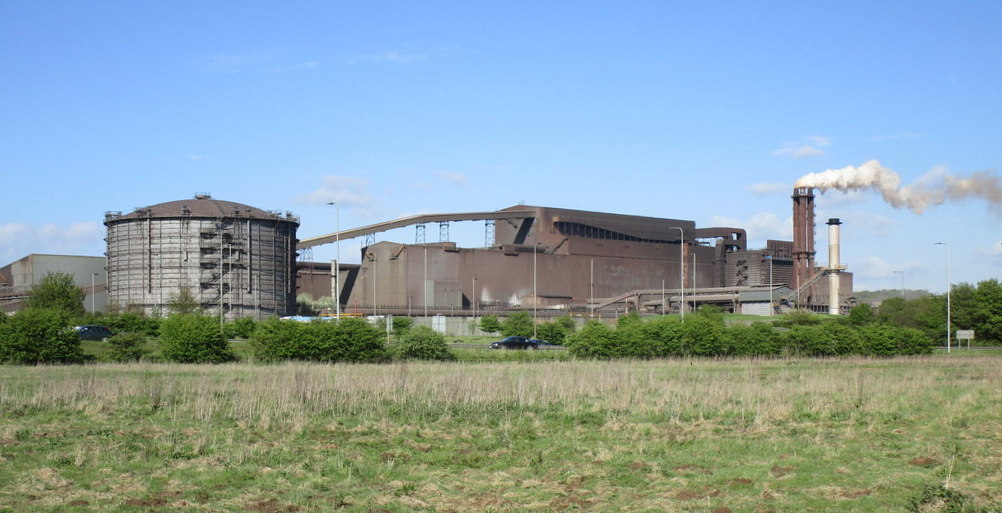 BBC News
BBC NewsBorrowing was £17.4bn last month, the second highest October figure since monthly records began in 1993.

Finito World
It is sometimes the case that good news arrives draped in uncertainty. The announcement that British Steel has secured a £500 million contract to supply train track to Network Rail over five years offers, at first glance, a reassuring message: jobs protected, infrastructure supplied, sovereignty upheld. But beneath the headlines lies a more delicate balance — between national ambition and industrial fragility, between short-term relief and long-term strategy.
Yes, the contract ensures work for Scunthorpe’s 2,700-strong workforce. Yes, it keeps two of Britain’s last operating blast furnaces — Bess and Anne — from falling silent. But in an industry already bruised by decades of managed decline, the question persists: is this a turning point, or just a pause before the next cliff edge?
A Contract Signed in the Shadow of Collapse
Just two months ago, the government intervened using emergency powers to prevent the closure of British Steel’s blast furnaces, accusing its Chinese owner, Jingye, of preparing to shut them down. At the heart of the standoff was a chilling prospect: the UK, once the crucible of the Industrial Revolution, losing the capacity to produce virgin steel — the kind made directly from iron ore, without recycling.
If those furnaces were to go cold, restarting them would be so complex and expensive that it might never happen. In strategic terms, it would be irreversible disarmament — not military, but industrial.
This new contract, then, does more than guarantee rail supply. It keeps alive a capacity that underpins everything from bridge construction to defence procurement. This is a capability not easily imported – a sovereignty not easily repaired.
Five Years of Steel, and a Century of Questions
Beginning on 1 July, the deal will see British Steel supply 80% of Network Rail’s track requirements, with the remainder filled by specialist European producers. It formalises a relationship that stretches back to 1865, when Scunthorpe first began supplying the steel skeletons of Britain’s growing railway network.
Craig Harvey, commercial director at British Steel, described the agreement as a “vote of confidence” in UK industry. Transport Secretary Heidi Alexander, preparing to visit the site this week, called it “transformational.” Yet both carefully avoided declaring it a resolution. It is, at most, a five-year reprieve.
Clive Berrington, of Network Rail, offered a telling phrase: the company, he said, remains “committed to buying British where it makes economic sense.” The subtext is plain. This is not ideological patriotism. It is market logic. The contract has been awarded not out of charity or nostalgia, but because — for now — British Steel remains cost-competitive.
But what happens if that ceases to be the case?
The Return of Industrial Strategy — or Panic Intervention?
The broader question concerns direction. Is this part of a coherent industrial strategy, or merely a reactive decision made under duress? In the background looms the closure of Port Talbot’s blast furnaces last year, the still-looming threat of Trump-era steel tariffs, and rising interest from foreign investors wary of Britain’s long-term industrial clarity.
Business Secretary Jonathan Reynolds has hinted that full public ownership remains on the table — but so does privatisation. The government continues to seek external investment. The strategy, such as it is, remains half-lit.
Still, the symbolism of this contract cannot be denied. At a time when the UK is about to unveil its national infrastructure strategy, this is a case study in how a nation attempts to hold onto the tools required to build its own future.
The Quiet Economics of Continuity
For Scunthorpe, the news means work. In uncertain towns and uncertain times, that matters. It means apprenticeships resumed, local suppliers re-engaged, and wages circulating through shops, pubs and schools.
Kevin Green, policy director at Logistics UK, was clear: “Efficient logistics with minimal delays is critical to the delivery of the government’s growth agenda… our members deserve the certainty to deliver.” Steel is not abstract. It is delivered, forged, cut, and laid — in towns like this one, by hands often taken for granted.
But we should not confuse survival with security. Britain has not recovered its steel industry. It has postponed its loss. The five-year deal buys time — time to define a national industrial future, or time to allow it to slip quietly away once again.
A Closing Thought
Steel is not just a material. It is an idea — about strength, endurance, and a kind of economic independence that has become rare in the age of offshoring and lean supply chains. In choosing to support Scunthorpe — even provisionally — the UK government has acknowledged something deeper: that to lose the means of making is to lose the means of self-determination.
Whether this is the first page of a recovery story or the last chapter of an era remains unwritten. But for now, the furnaces burn. The sparks fly. And for the people who work beside them, five more years is not everything — but it is, at least, something.